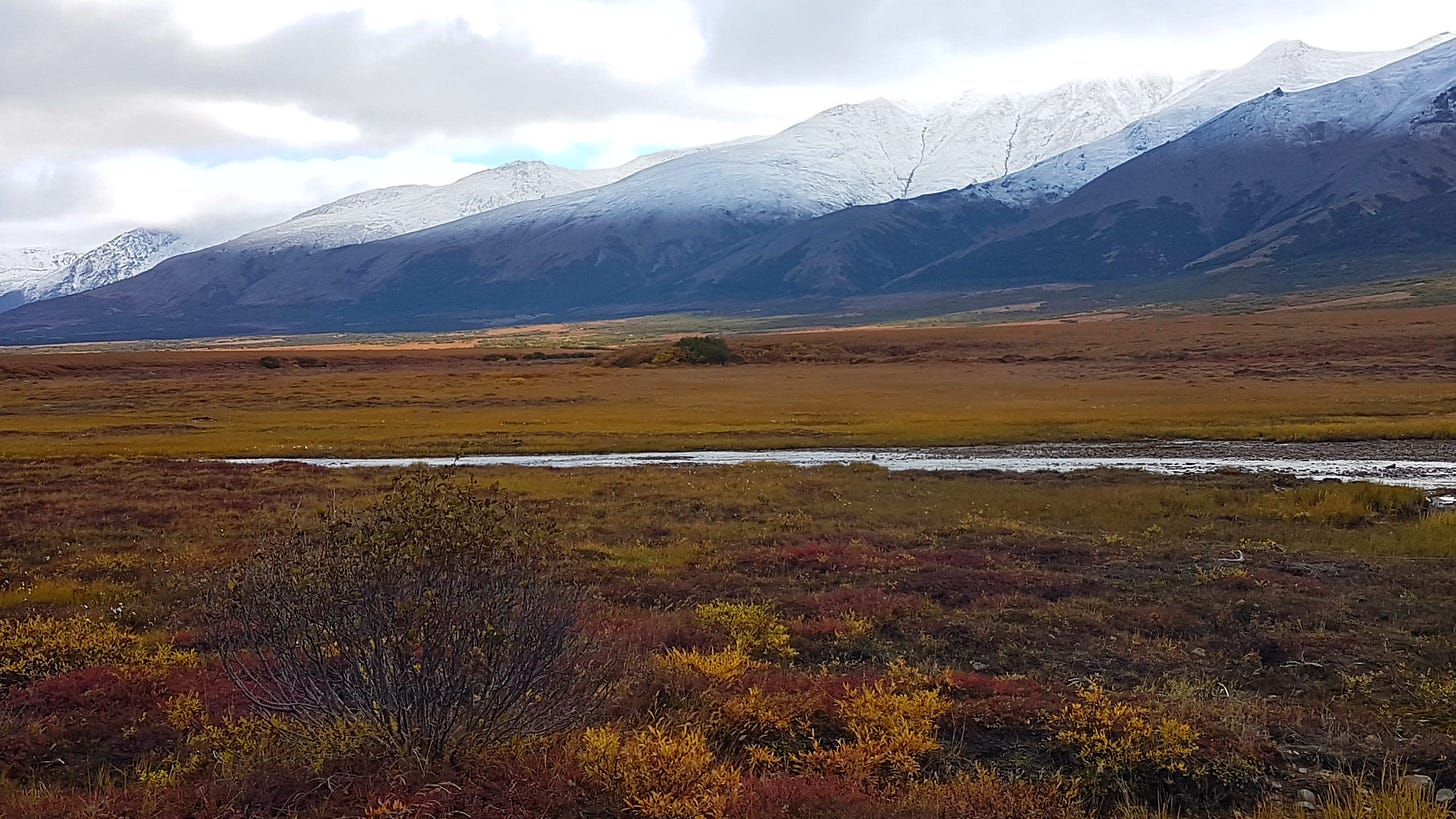Biden Administration Still Ignoring Tribes’ Request for Consultation on Graphite Mine
By Hal Shepherd
We are a small voice up against the federal and state government’s actions to give the mining industry whatever it wants for the sake of critical minerals. This place is our home, and we rely on the Imuruk basin for hunting and fishing, and drinking water. What happens to us when those uses are gone?
Jeni Leigh - President, Teller Traditional Council,
The stories of the Kauwerak Country, located in the center of the Seward Peninsula, tell of a time when there was so much abundance in the area the ancestors of the Inupiat people who live there did not have to think about making tools for hunting or harvesting. As a result, the concept of worrying about survival was largely foreign to them. At the time, the Kawerak Country was a kind of Garden of Eden, so much so that today the area continues to be a spiritual place for many.
A prominent feature of the area is a vast inland sea known as the Imuruk Basin, encompassing about one-quarter of the Seward Peninsula. The basin takes in flows from several large rivers, including the Kuzitrin, Agiapuk, Kruzgamepa, and Cobblestonem. The unique combination of geology, freshwater, and saltwater makes the Imuruk Basin one of the most biologically diverse ecosystems in North America and the abundant fish and wildlife makes it critical to the Tribes for subsistence uses.
Enter the proposed Graphite One mine, located at the base of the spectacular Kigluiak Mountain Range where exploration activities are underway and have already impacted subsistence activities of the nearby Alaska Native community. These impacts include the removal of up to 65,000 gallons per day of water from several salmon-bearing streams that drain into the Basin, daily helicopter and other motorized activities that harass wildlife, and drilling, road exploration, and stream crossing with heavy equipment that impacts drinking water and damage fish and wildlife habitat.
Regardless of these impacts, in July 2023, the Department of Defense (DOD) awarded the Graphite One mine a $37.5 million technology investment grant to accelerate the company’s mining feasibility study. However, despite the fact that President Biden’s issued Executive Order 13175 directing all federal agencies and departments to engage in regular and meaningful tribal consultation in the development of policies that have Tribal implications, the Department has yet to fulfill this obligation. Further, DOD’s own guidelines call for consultation whenever tribal interests are affected by federal actions, and its Alaska-specific implementation instruction for these guidelines states, “because of extensive renewable resources, cultural, and religious interests in Alaska, which are not limited to Indian land, notification of any [Department] activity will be provided to tribes in the area potentially affected by the activity.”[1]
As a result of its failure to comply with the consultation requirement, in October 2023, the Native Villages of Teller, Brevig Mission, and Mary’s Igloo sent a letter to the Department requesting such discussions. Due to the lack of response to the original request and after they discovered that the DOD had increased its share of grant expenditures to $49.8 million to accelerate completion of the Feasibility Study, the Tribes recently sent a follow-up letter calling once again, on the Department to consult.
DOD’s repeated failure to even notify the Tribes prior to making a funding decision that directly impacts tribal interests, and then again when it increased the contract value to facilitate the accelerated completion of the Feasibility Study, is also contrary to the administration’s stated commitment to strengthen and fulfill the federal government’s responsibility to tribes in decision making. In a memorandum to the heads of executive departments and agencies, President Biden acknowledged, “My Administration is committed to honoring Tribal sovereignty and including Tribal voices in policy deliberation that affects Tribal communities.”[2]
According to Jeni Leigh President of Teller Traditional Council, “We are a small voice up against the federal and state government’s actions to give the mining industry whatever it wants for the sake of critical minerals. This place is our home, and we rely on the Imuruk basin for hunting, and fishing, and drinking water. What happens to us when those uses are gone?”
Acknowledging that the Federal Government has much to learn from Tribal Nations and that strong communication is fundamental to a constructive relationship. Secretary of the Interior Debra Haaland says, “Tribes deserve a seat at the decision-making table before policies are made that impact their communities.”[3] Assistant Secretary for Indian Affairs Bryan Newland similarly stated, "[W]e must develop collaborative partnerships with Tribal nations so that we uphold our trust responsibilities and build consensus when developing policies that impact Tribes."[4]
It is hard to imagine a mile-wide open pit mine within the stunning beauty and biologically productive Kigluiak Mountain range. But under Graphite One’s current plans, and with the full support of the Federal and State government, the company is already making plans to expand development along the rich graphite deposits which run for several miles along the Mountain Range. While we all are aware of the need for critical minerals, the question should be whether it is really worth destroying biologically and spiritually important places and the cultures that depend on them so that one day, we can all be driving around in electric cars?
[1] Alaska Implementation Guidance for DoD Alaska Native Related Policies and Instructions (Apr. 13, 2020).
[2] Memorandum on Tribal Consultation and Strengthening Nation-to-Nation Relationships, 86 Fed. Reg. 7491 (Jan. 26, 2021).
[3] U.S. Dep't of the Interior, Interior Department Strengthens Tribal Consultation Policies and Procedures (Dec. 1, 2022), https://www.doi.gov/pressreleases/interior-department-strengthens-tribal-consultation-policies-and- procedures.
[4] Id.


